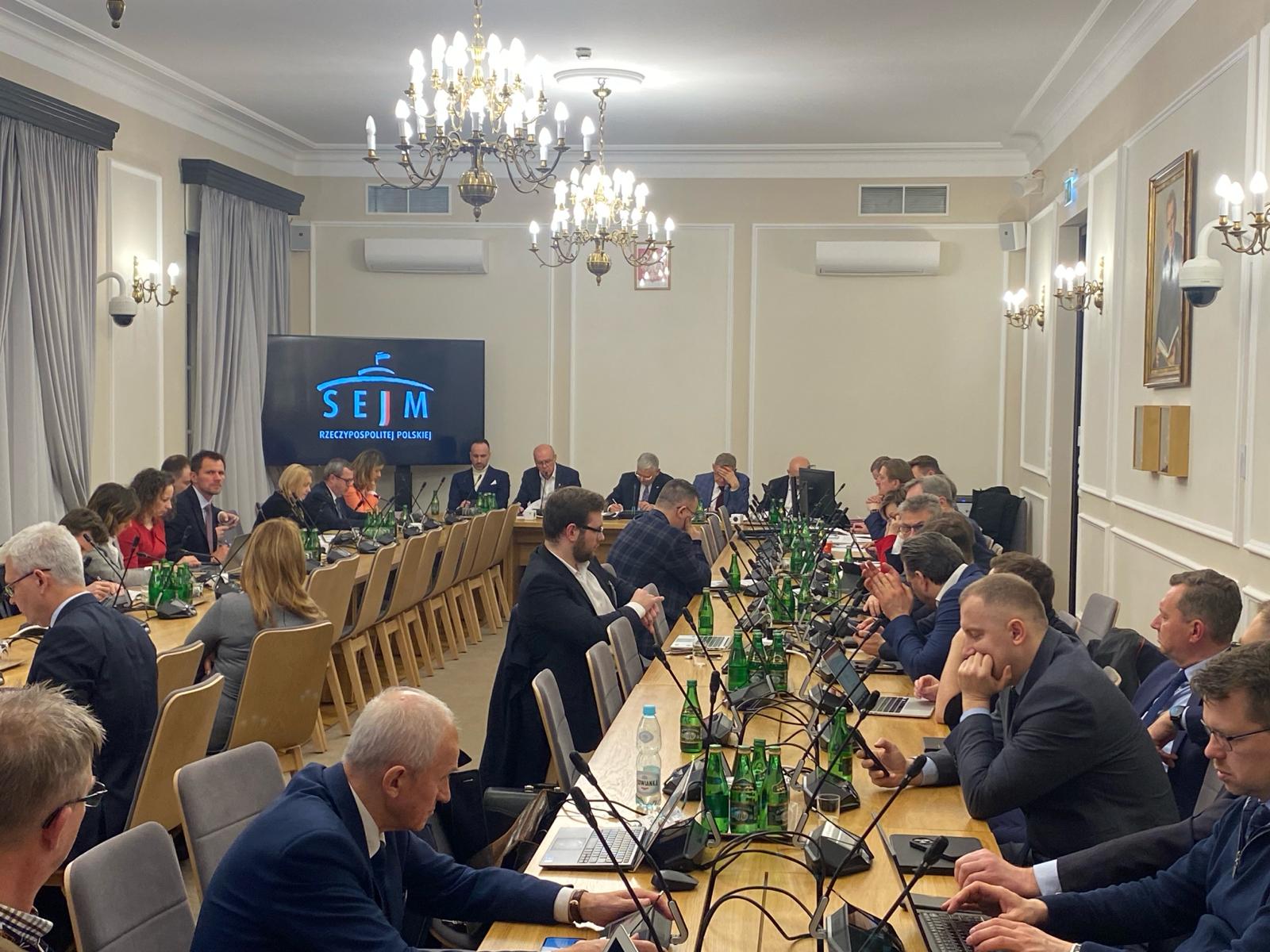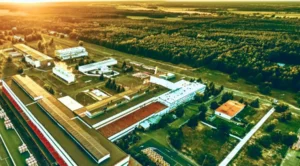On February 7, the Commission on Energy, Climate and State Assets (ESK) held a meeting where MPs analyzed the remarks from the President of Energy Regulatory Office (URE) on the Polish power industry, changes in dynamic tariffs and available solutions for individual customers that own PV installations and heat pumps.
At the beginning of the discussion, data on the energy mix were presented. According to the Energy Regulatory Office, in 2021-22, the installed capacity of natural gas in the power system increased to 9.7 GW, and coal-fired capacity decreased by 1.2 GW. In the case of zero-emission sources, the installed capacity in PV was 5.6 GW, and in wind power plants – 7 GW. In addition, URE forecasts that there will be a decline in power from fossil sources over the next 15 years, and coal units will be phased out in 2021-36.
URE President Rafał Gawin mentioned advanced measuring sensors that can better study the real energy demand in households. „The law of July 22, 2023 introduced a number of new solutions, but a key element in the energy transition is the intelligent measurement of energy consumption by energy consumers. Smart sensors have an impact on achieving long-term goals that contribute to decarbonization and changing our mix. In order to integrate more zero-emission sources, more flexibility is needed,” Gawin stated.
The Committee also discussed the development of infrastructure transmission. „Distribution networks play a key role in this process. They need to be rebuilt and modernized. It is also necessary to increase their capacity,” he noted.
The URE President drew attention to a problem related to prosumer installations. He explained that the operators of distribution systems do not have production data, which makes it impossible to determine the actual amount generated by one unit, and lack of this information may result in obtaining incorrect data. The refusals to connect prosumers to the grid are a significant issue when it comes to connecting to the grid. In 2021, 475,000 applications were rejected and the number of consents was approx. 30,000. Importantly, Gawin noted that he does not know the exact numbers of new prosumer installations.
Tomasz Nowak MP (Civic Coalition) commented on the URE report. „What we read is shocking. If the President of the URE does not know how many prosumer installations there are and how much energy was produced, he makes all these data unreliable. It seems that it is necessary that the Supreme Audit Office investigates the prosumer bills,” he said. Nowak asked about the reliability of Poland’s energy policy until 2040, and also warned that in the early 2030s the Polish power system may run out of energy.
According to Krzysztof Tchórzewski (Law and Justice), the development of zero-emission sources has destabilised the entire electricity system. „The analysis presented by the President of the URE reflects the state of the economy and citizens. Energy consumption in previous years has increased by 50 percent, because Poland is still developing. Maybe we should not have given up on adding 6 GW of coal capacity? Currently, we urgently need energy only from stable sources,” said MP Tchórzewski. The MP added that it was necessary to curb investments in PVs and it was necessary to implement regulations hindering development renewables.
Janusz Kowalski (Sovereign Poland) admitted during the discussion that there are no concrete plans for the energy transition until 2040. „We really lack an energy strategy for 2040. Brussels is also making it difficult for us to choose our goal. Energy prices will rise as the cost of emissions under the EU ETS increases. When it comes to RES, we should focus on biomass, because it is a stable source of zero emissions,” Kowalski said.
The discussion was also attended by businessmen who called for the urgent development of energy storage facilities that will help to better use the potential of RES, as well as demanded wider liberalization of the energy market.
Picture by Jacek Perzyński









